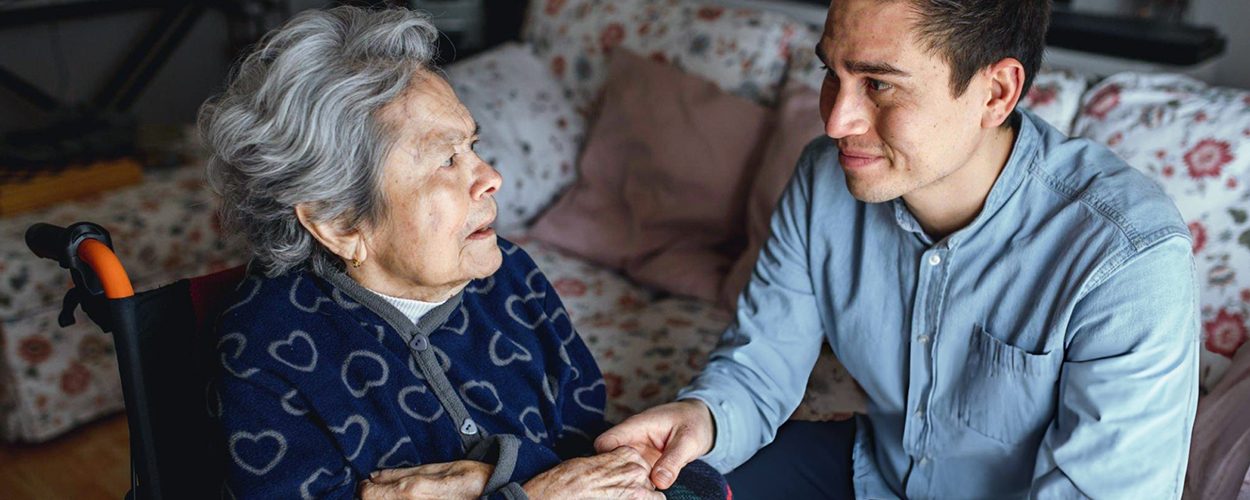
Dementia is a condition that impacts millions of individuals worldwide. It hinders the individual’s ability to think, communicate, and complete daily activities. If you have a family member or loved one living with dementia, understanding how dementia progresses is important for providing the best care and emotional support to them. In this blog by Star Capital, we will discuss the stages of dementia, what happens in each stage, and how to assist someone with dementia through each stage.
Dementia progresses gradually, usually over several years. Physicians typically utilize a seven-stage model to explain the progressive condition of dementia from normal aging to stage 7. These stages were developed from the Global Deterioration Scale (GDS), a tool used for measuring cognitive decline over time. Although everyone’s journey can be different, understanding the stages can help you identify early warning signs and prepare for care planning.

Stage 1: No Cognitive Decline (Normal Function)
At this stage, the individual shows no signs of dementia. There are no observable effects in their activities of daily living. While there are no symptoms, it is crucial to promote brain health at this stage through:
Try to include regular health checkup appointments and engage in activities to maintain cognitive health.
Stage 2: Very Mild Cognitive Decline (Age-Related Memory Loss)
This stage may resemble normal aging and show occasional forgetfulness, such as forgetting familiar names or where someone placed things, or taking a bit longer to remember a particular word. What to do:
It is important to note that not all of those in this stage will progress to dementia. Primarily, mild forgetfulness in this stage is most likely simply a part of aging.
Stage 3: Mild Cognitive Impairment (Early Signs of Dementia)
This is when your loved one is becoming more aware of memory problems. Someone may experience increased difficulty with recalling recent events, finding the right words to converse, or effectively organizing tasks. Some common symptoms are:
The adult may still be able to live alone, but subtle changes will become apparent. Physicians may begin to do memory or cognitive testing to assess the condition.
Stage 4: Moderate Cognitive Decline (Early-Stage Dementia)
During this phase, the condition of dementia is more visible. The person may experience trouble remembering recent events or difficulty completing daily activities, including cooking or traveling by themselves. Symptoms may include:
In this stage, the person realizes there is something wrong, which creates an emotional burden. Support them by providing reassurance and patience, keeping the daily routine simple, and encouraging social engagement.
Stage 5: Moderately Severe Cognitive Decline (Mid-Stage Dementia)
Stage 5 is considered a significant decline in thinking abilities. The individual requires assistance in daily tasks, including bathing, dressing, and having meals. Common signs include:
Maintaining a structured routine can help reduce confusion. Use memory aids like photos or notes around the home. Emotional support is necessary here.
Stage 6: Severe Cognitive Decline (Middle to Advanced Stage of Dementia)
This is one of the advanced stages of dementia. The individual requires extensive help with daily living activities. They may experience difficulty recognizing family members or recalling personal history. Symptoms can include:
This is also referred to as one of the aggressive stages of dementia, where the emotional concerns may worsen. Manage this situation by staying calm during confusion. Try to provide a comforting environment, such as soothing music. Use short, clear sentences and maintain eye contact when speaking. Seek professional help from a dementia care specialist or organizations that have experience in handling patients with dementia.
Stage 7: Very Severe Cognitive Decline (Late or End-Stage Dementia)
In the final stage of dementia, it severely impacts every area of life. The individual may lose the ability to communicate, control their body movements, and may lose the ability for basic functions like eating and walking. Typically, characteristics include:
During this stage of care, the focus shifts to managing comfort, compassion, and dignity. Palliative care can provide comfort and a pain-free environment. To support them, provide a peaceful environment and gentle touch, like holding hands. play soft music or speak softly to them. As a caregiver, you must take care of yourself by engaging in support networks and counseling services.
Aggression during dementia can be encountered in later stages of dementia, that is, Stage 6 and Stage 7. Aggression is not purposeful and can stem from confusion, fear, pain, or frustration. Some possible triggers for aggression include:
When dealing with aggressive stages of dementia, stay calm and don’t argue. Identify possible triggers and remove them. Speak in a calm voice.
Caring for someone who is in the aggressive or advanced stages of a condition can be a difficult task. However, a little bit of compassion and understanding can make these times easier. Tips for caregivers:
Star Capital understands the emotional struggles and financial stresses that all long-term conditions, including dementia, pose to the family. Our staff offers families support, guidance, and a framework to assist families during these stages with dignity and compassion.
Dementia is a slow process that has new challenges at each step. When families understand the stages of dementia and recognize early signs, this offers families an opportunity to plan to give their loved one the quality care they deserve. At Star Capital, we believe that awareness leads to better care. When caregivers know the stages of dementia, they can be better prepared and feel more competent and compassionate to support their loved one through each step of their dementia journey.
42220 Sweet Court
Chantilly, VA 20152
Phone : 571-406-7827
GOOSE CREEK MANOR
104 Marylin Street
Goose Creek, SC 29445
Phone : 843-572-7442
SHULER HEALTH CARE
250 pitts street, kernersville,
NC, 27284
Phone : 336-996-0772
CYPRESS MANOR
503 W Buncombe Street,
Roper, NC, 27970
Phone : 252-791-0002
ELTON RCH
30 W Main Street,
Waterbury, CT, 06702
Phone : 203-756-1229
Waterbury Garden RCH
128 Cedar Ave,
Waterbury, CT
Phone : 475-306-6888